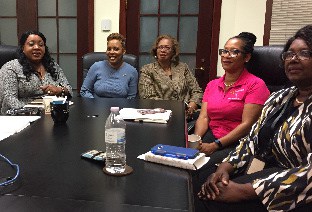Dozens of additional UN Police start work in Haiti to help local officers
PORT AU PRINCE, Haiti – More than 100 additional United Nations police officers are already on the ground to help Haiti, which was devastated by a massive earthquake last month, following a call by the Security Council for extra forces to support the beleaguered Caribbean nation.
The 120 officers from Chile and France represent the first batch of about 1,500 extra police authorized by the Security Council last month to assist the Haitian National Police (HNP) carry out its work. The Council also called for 2,000 more troops.
In total, about 500 police officers are expected to have arrived in Haiti by the end of this month, with Spain, the Netherlands, Bangladesh, Italy and Israel each supplying staff.
One of the top priorities of the additional police officers is to prevent public unrest, Acting UN Police Adviser Ann-Marie Orler told the UN News Centre.
The situation in Haiti is calm, she said, but “it”s good to have these groups on the ground for security and visibility,” especially as the rainy season approaches.
Member States have been very quick to respond and “are doing their best to support in whatever way they can,” be it by sending police officers or supplying equipment.
Colin Farquhar, a police adviser for Canada, another contributor to UN Police (UNPOL) in Haiti, praised the leadership of Ms. Orler since the disaster and said the UN was working closely with Member States on this issue.
Hours after the quake struck Haiti on 12 January, UNPOL sprang into action to assist the HNP, which lost nearly one third of its 14,000-strong force in the disaster, carry out patrols on the streets of the capital, Port-au-Prince.
The main function of UNPOL is to deal with crises, Ms. Orler said, and “we have tried to support [the HNP] in every possible way.”
A Jordanian Formed Police Unit (FPU) – comprising police officers trained in dealing with high-risk operations – serving with UNPOL has handed over its camp site to the HNP, whose headquarters were destroyed in the disaster that has killed an estimated 200,000 people and left 2 million others in need of assistance.
Immediately after the quake, the UN rushed to identify the most urgent needs for the Haitian police, including riot control equipment and new uniforms in the wake of a prison break in the capital, during which thousands of criminals escaped, some with HNP attire.
The world body also dispatched senior police officials and a 12-member Standing Police Capacity (SPC) team, tasked with providing immediate start-up capability on the ground and with providing rapid support, advice and assistance.
UNPOL serving in Haiti are mandated to help monitor, restructure and reform the HNP, and its main current tasks are ensuring public safety and to facilitate the distribution of urgently-needed humanitarian aid.
Despite the scale of the disaster in Haiti, which was already the Western Hemisphere”s poorest nation before the earthquake, its police force will not be rebuilding from scratch, Ms. Orler emphasized.
“What was destroyed was equipment,” not human capital, she stressed, pointing out how this was demonstrated by the speed at which patrols resumed after the disaster. UNPOL is also forging ahead with police training, with the next batch of Haitian officers set to undergo instruction in two weeks.
With the UN Stabilization Mission in Haiti, or MINUSTAH, unable to supply food or accommodation for new police officers, at present, any new units that are deployed must be self-sustained, which FPUs are, Ms. Orler noted.

